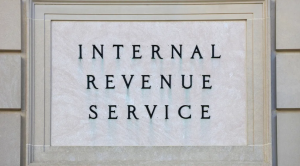Tax season is a year-round affair, and while the April deadline often takes center stage, several other crucial tax deadlines are scattered throughout the year. As we approach October 16, it’s essential to be aware of the various tax obligations that individuals and businesses must meet by this date. In this article, we’ll explore six significant tax deadlines for October 16, why they matter, and how to ensure compliance.
- Extended Individual Income Tax Deadline
For many individuals, the primary reason October 16 is significant is that it marks the extended deadline for filing federal income tax returns. If you requested an extension back in April, this is the last opportunity to submit your return. Keep in mind that if you owe taxes, you should make a payment by this date to avoid penalties and interest.
- Extended Business Income Tax Deadline
Businesses also benefit from the extended deadline, which allows them to file their federal income tax returns by October 16. This applies to various business entities, including sole proprietorships, partnerships, and S-corporations. Be sure to complete and file all necessary forms to report business income and expenses accurately.
- Extended Trust and Estate Income Tax Deadline
Trusts and estates have their own set of tax responsibilities, and the extended deadline in October is particularly significant for them. Form 1041, used for reporting trust and estate income, deductions, and credits, must be filed by this date. Failure to meet this deadline can result in penalties and interest.
- Extended Foreign Bank Account Report (FBAR) Deadline
For U.S. taxpayers with financial accounts in foreign countries, the extended FBAR deadline is a crucial date to remember. The Financial Crimes Enforcement Network (FinCEN) requires individuals with foreign accounts exceeding $10,000 to file an FBAR. This deadline applies to both individuals and businesses with such accounts.
- Extended Self-Employed Retirement Plan Deadline
Self-employed individuals who wish to establish or contribute to certain retirement plans, such as a Simplified Employee Pension (SEP) IRA or a solo 401(k), can use the October 16 deadline. Contributions made by this date can be deducted on the previous year’s tax return.
- Extended Gift Tax Return Deadline
If you made significant gifts during the previous tax year and exceeded the annual gift exclusion limit, you may need to file a gift tax return (Form 709). The extended deadline provides additional time to report these gifts accurately.
Why These Deadlines Matter
Understanding the significance of these deadlines is crucial for several reasons:
Avoiding Penalties: Failing to meet tax deadlines can result in penalties and interest, increasing your overall tax liability.
Maintaining Compliance: Complying with tax deadlines ensures that you meet your tax obligations and reduces the risk of audits or inquiries from tax authorities.
Maximizing Tax Benefits: Meeting these deadlines allows you to take full advantage of tax deductions, credits, and retirement savings opportunities.
Ensuring Compliance
To ensure compliance with these October 16 tax deadlines, consider the following steps:
Gather Necessary Documents: Organize all relevant financial documents, such as income statements, expense records, and supporting documents for deductions.
Consult a Tax Professional: If you have complex tax situations or are unsure about how to proceed, consider consulting a tax professional who can provide expert guidance and ensure that you adhere to the tax laws and regulations.
Use Online Filing Services: Many tax obligations can be fulfilled online. Utilize electronic filing options to streamline the process and reduce the risk of errors.
Make Payments on Time: If you owe taxes, be sure to make payments by the deadline to avoid penalties and interest. Explore payment options to determine the most suitable method for your situation.
October 16 may not be as widely recognized as the April tax deadline, but it is a significant date for several crucial tax obligations. Whether you are an individual, business owner, or trustee, these deadlines should not be overlooked. By meeting these obligations and ensuring compliance with tax laws and regulations, you can maintain financial stability and take full advantage of tax benefits and opportunities.



























